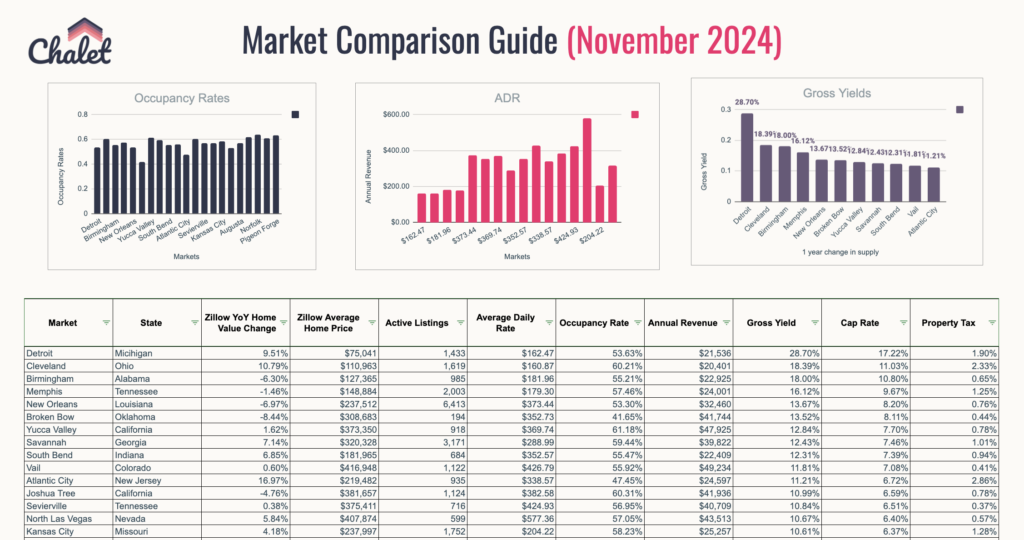As the popularity of short-term rentals (STRs) continues to rise, many cities are implementing regulations to manage their growth and impact on local communities. Saint Augustine, FL, a city known for its rich history and vibrant tourism, is no exception. Whether you are a current Airbnb host or considering becoming one, it is crucial to understand the regulatory landscape. This comprehensive guide will delve into the specific regulations affecting short-term rentals in Saint Augustine, FL, and provide essential resources for compliance.
Understanding Saint Augustine’s Short-Term Rental Regulations
1. Zoning Laws
Saint Augustine’s zoning laws are a critical aspect of its approach to regulating short-term rentals. The city has designated specific areas where STRs are permitted and areas where they are restricted. Generally, short-term rentals are more commonly allowed in commercial and mixed-use zones, while residential areas have stricter limitations.
2. Licensing Requirements
Operating an Airbnb in Saint Augustine requires obtaining the appropriate licenses. Hosts must apply for a business tax receipt, which is essentially a business license. Additionally, a vacation rental permit is mandatory. This permit ensures that the property meets all safety and health standards required for hosting guests.
3. Safety and Health Standards
To protect guests, Saint Augustine enforces strict safety and health standards for all short-term rentals. These include, but are not limited to, having functional smoke detectors, carbon monoxide detectors, and fire extinguishers. The property must also comply with local building codes, which may involve regular inspections.
4. Occupancy Limits and Noise Restrictions
Saint Augustine has implemented occupancy limits to prevent overcrowding in short-term rental properties. The maximum number of guests is typically based on the number of bedrooms and the overall size of the property. Additionally, noise restrictions are in place to ensure that Airbnb guests do not disrupt the tranquility of residential neighborhoods. Quiet hours are often enforced from 10 PM to 7 AM.
Top 200 Airbnb Rental Markets

Instantly compare top 200 short-term (Airbnb) rental markets in the US
5. Parking Regulations
Parking can be a significant concern in tourist-heavy areas like Saint Augustine. The city requires short-term rental properties to provide adequate parking spaces for guests. This requirement helps mitigate congestion and ensures that residents have access to street parking.
6. Tax Obligations
Short-term rental hosts in Saint Augustine are responsible for collecting and remitting various taxes, including the Transient Occupancy Tax (TOT), state sales tax, and county tourist development tax. Airbnb typically facilitates the collection and remittance of these taxes on behalf of hosts, but it is essential to verify compliance to avoid penalties.
Enforcement and Penalties
Saint Augustine takes the enforcement of its short-term rental regulations seriously. Non-compliance can result in significant fines, permit revocations, and even legal action. It is crucial for hosts to stay informed about any updates to local laws and ensure their properties adhere to all requirements.
Resources for Saint Augustine Airbnb Hosts
City of Saint Augustine Official Website
The official website provides comprehensive information about zoning laws, licensing requirements, and other regulations. It is an invaluable resource for hosts seeking detailed and up-to-date information.
Saint Augustine Planning and Building Department
The Planning and Building Department can assist with questions regarding zoning, building codes, and permit applications. They offer guidance to ensure that your property meets all regulatory standards.
Florida Department of Revenue
The Florida Department of Revenue provides information on state tax obligations for short-term rental hosts. Their website offers tools and resources for tax collection and remittance.
Airbnb’s Responsible Hosting Page
Airbnb offers a dedicated page for responsible hosting, which includes specific information for hosts in Saint Augustine. This resource covers local laws, tax collection, and best practices for compliance.
Local Property Management Companies
Hiring a local property management company can be beneficial for Airbnb hosts. These companies are well-versed in local regulations and can handle day-to-day operations, ensuring compliance and providing peace of mind.
Conclusion
Navigating the regulatory landscape of short-term rentals in Saint Augustine, FL, can be complex, but it is essential for successful and compliant hosting. By understanding and adhering to local laws, Airbnb hosts can contribute positively to the community while enjoying the benefits of short-term rental income. Utilize the resources provided and stay informed about any changes to ensure your property remains a welcoming and lawful destination for visitors.
Sources:
- City of Saint Augustine Official Website: www.citystaug.com
- Saint Augustine Planning and Building Department: Planning & Building
- Florida Department of Revenue: www.floridarevenue.com
- Airbnb Responsible Hosting: www.airbnb.com/responsible-hosting
This blog post aims to equip Airbnb hosts with the knowledge needed to navigate Saint Augustine’s short-term rental regulations effectively. By staying compliant, hosts can ensure a positive experience for themselves, their guests, and the local community.

